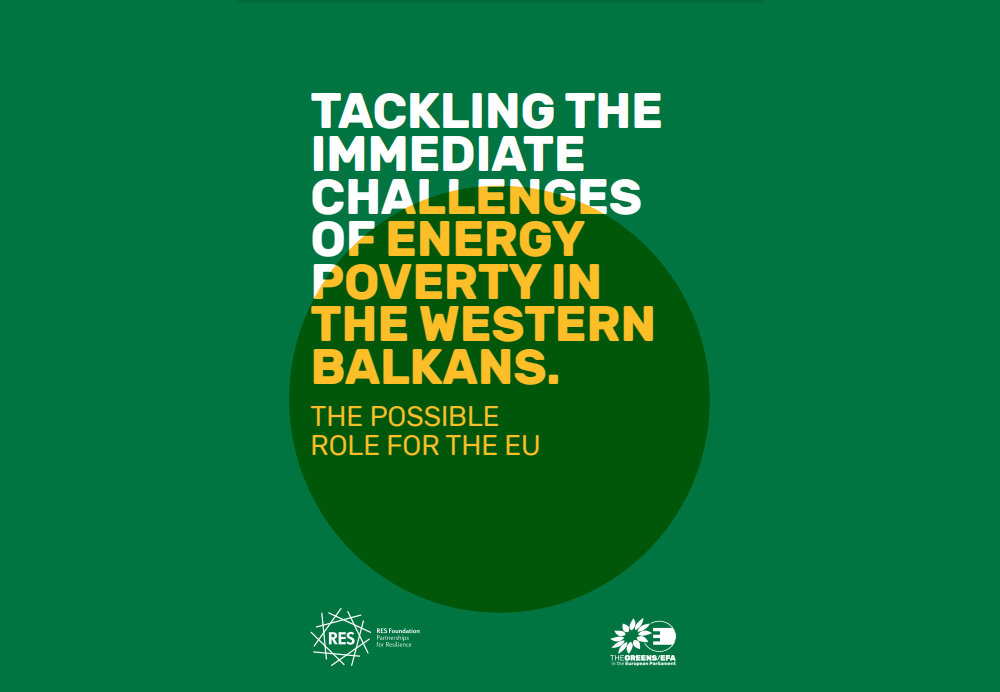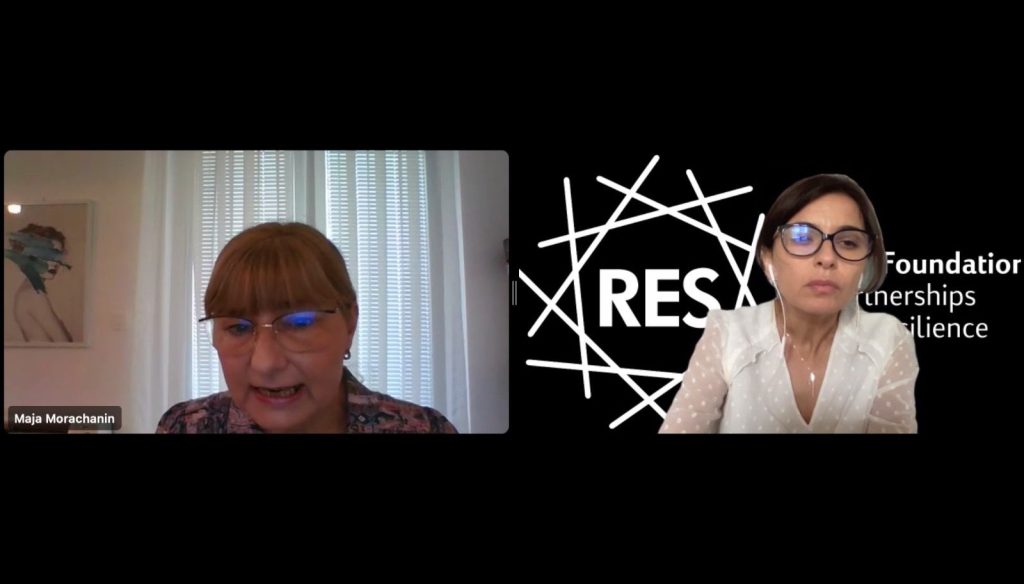
The Cluster International Affairs of the Greens/EFA Group in the European Parliament has commissioned designing this study to RES Foundation, and the study aims to outline current EU-Western Balkan energy cooperation schemes and propose a concrete set of recommendations, with a particular focus on the most vulnerable group affected: the energy poor.
On July 19th, European Parliament hosted an online presentation meeting, where co-founder and programme director of RES Foundation, Jasminka Young, spoke about the study, its purpose and possible impact. She explained that this study investigates the energy sector developments and the role of the European Union in this process, primarily through the critical overview of the main grant support schemes. And as a result it identifies several existing policy gaps and avenues for potential EU assistance.
She emphasized that the main focus in this study is to understand the specific context being taken into account in the public policy response to the energy poverty, both by the national and the EU level. Young revealed three main findings of this study:
- A number of publicly supported schemes are available for the improvement of residential energy efficiency in the WB region. Most of the available public subsidies support beneficiaries who already have income, access to retail banking, and are not considered risky customers for consumer credit. At the same time they fail to provide for the energy poor in the WB countries who usually do not have access to commercial money. The existing schemes discriminate those in poverty and prevent them participating and benefitting from public subsidies as required levels of co-investment of own resources exceed their purchasing power.
- The programming mechanisms of the EU support presented in this study do not promise the delivery of the effective assistance to the energy poor. For example, out of all programmed IPA country support 2014 to 2022 that has been labelled in this study as energy related, almost 70% were allocated around only three topics, two in Kosovo* and one in Serbia. All three-target fossil fuel energy infrastructure, extending carbon lock-in and even increasing the CO2 emissions in the case of Kosovo B power plant. Another example: out of all Western Balkan Investments Framework project grants in energy sector in the same period 37% were allocated to the Regional Energy Efficiency Programme that leaves out the energy poor while 28% were granted to commercial electricity production projects.
- Another prominent provisional inconsistency concerns the comparison of the IPA programmed energy support for 2014-2022 to the ongoing energy package for immediate support. The amount allocated for unspecified immediate direct budgetary support to the WB countries is almost double in comparison to the IPA programmed energy support for 2014-2022.

Young also spoke about recommendations to increase the benefits of the EU energy related support to the WB and the energy poor.
- Initiate and enforce the change in the EU and national programming procedures for the Western Balkan countries allowing also for the increased transparency, broadened participation, and broadened choice of project proponents for the creation of the Single Project Pipeline.
- Set aside a separate budget for energy poverty eradication in the IPA multi country support framework that is currently missing to deliver on energy poverty.
- Support the establishment of the project-based special purpose vehicle for energy poverty eradication in the WB region.
- Support regional partnerships with national and local governments, civil society organisations + the UN system that might be a good match to considerably contribute to the energy poverty eradication in the WB region.
- Finally, it is critical to highlight in the end that it is essential to better monitor and condition the direct budgetary support instrument.
The study presents the main features of carbon and energy intensive economies in the Western Balkans (WB). It focuses on the energy poverty that affects millions of citizens of the WB. Energy poverty is the most prominent policy challenge in the WB and the obstacle to energy transition. Yet it remains invisible for the existing policy interventions for both the region and also the EU.
The energy poverty, a shared challenge in the WB region, has been marginalised by the decision makers even though its eradication holds the potential to unlock economic, social, health, environmental and technological benefits for the citizens of the WB region. Meanwhile, the price of pellets and firewood used for household heating has increased across the EU and the Western Balkans.
The study points out the urgency for design and implementation of effective policy measures to tackle energy poverty in the WB and added that this study highlights the existing governance and financial misconceptions, and resulting gaps when it comes to energy sector developments and support in the WB region. Additionally, it offers a more focused view into the possibilities to increase the benefits of the EU support to the energy sector in the WB by concentrating on the most pressing issues of carbon and energy intensity, energy security, energy poverty and resulting pollution.
To create the benefits for energy poor it is critical for the EU to redesign the existing governance and programming framework. The EU could establish and fund a special regional programme and implementation mechanism for the support for energy poor under the multi-country financial assistance. The goals of the intervention should be based on the principles laid out in Recommendations on energy poverty of the EC focusing on energy efficiency interventions in the households.
Read the study: Tackling the Immediate Challenges of Energy Poverty in the Western Balkans: The possible role for the EU.
